Duty of Care and NQF: Ethical Considerations in Education Settings
VerifiedAdded on 2023/06/03
|5
|815
|224
Homework Assignment
AI Summary
This assignment delves into the ethical responsibilities within education and care environments, particularly focusing on the duty of care and the impact of the National Quality Framework (NQF). It addresses scenarios involving breaches of confidentiality and negligence, emphasizing the importance of maintaining a safe learning environment for children. The assignment also examines the reporting requirements in NSW, highlighting instances where reporting becomes mandatory, such as cases of abuse. Furthermore, it explores how the NQF influences organizations and their workers through staff qualifications, changes to service, and records management. The assignment also discusses conflict resolution strategies and the importance of maintaining confidentiality, promoting diversity, and fostering positive interactions with parents and children. This detailed analysis provides a comprehensive overview of ethical and legal considerations in the education sector. Desklib provides access to a wide range of study tools, including past papers and solved assignments to support students.
1 out of 5
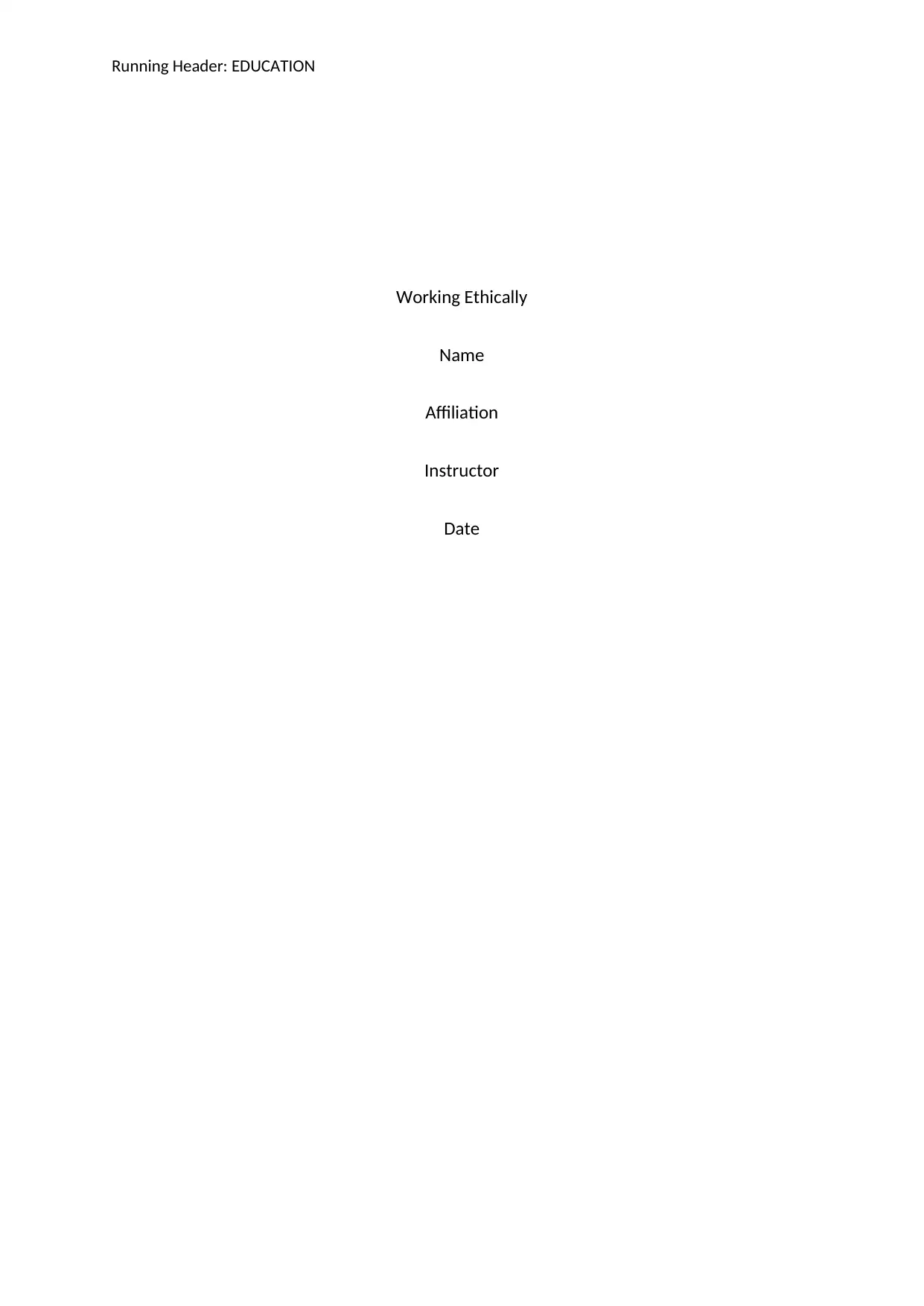
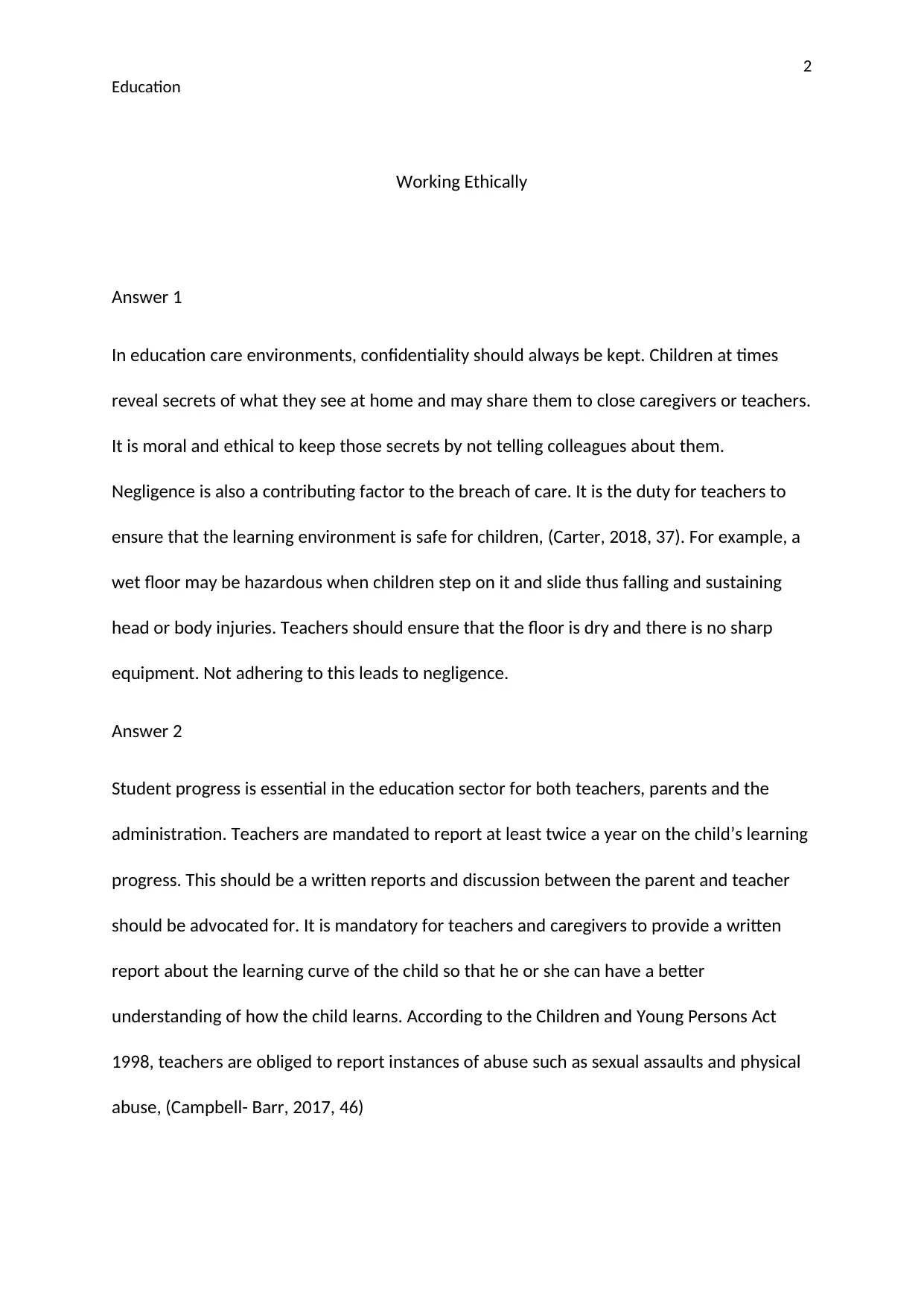
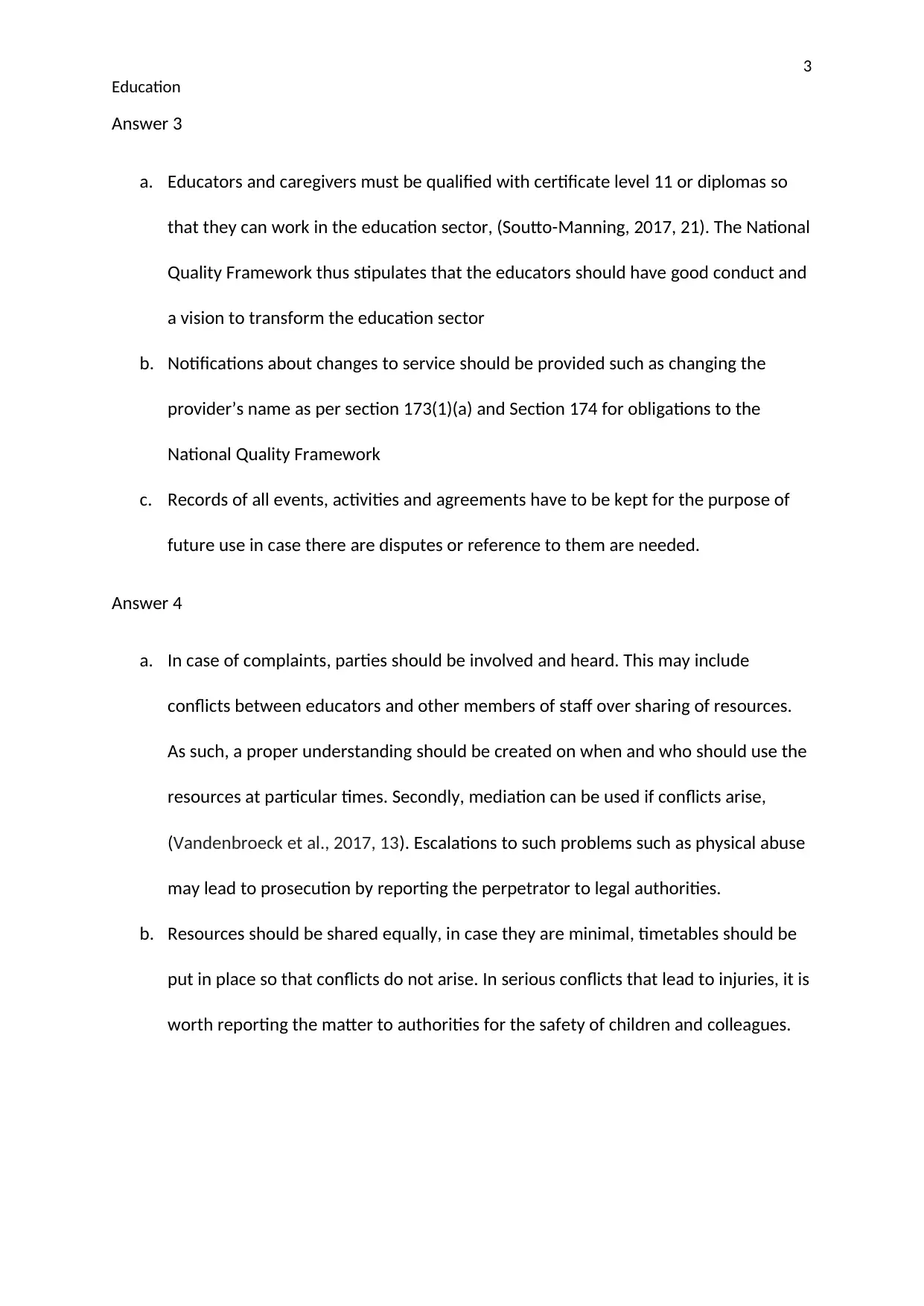

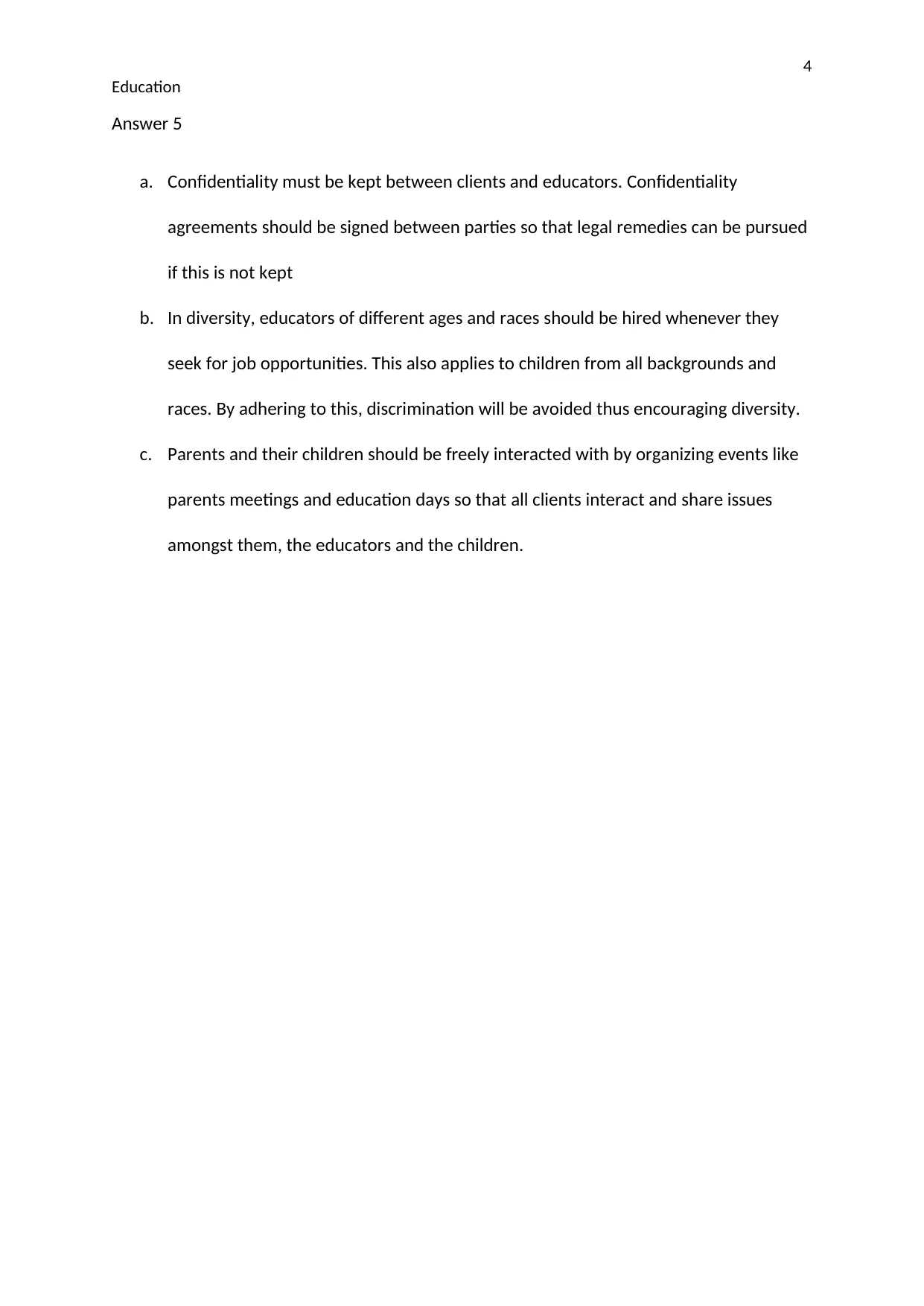
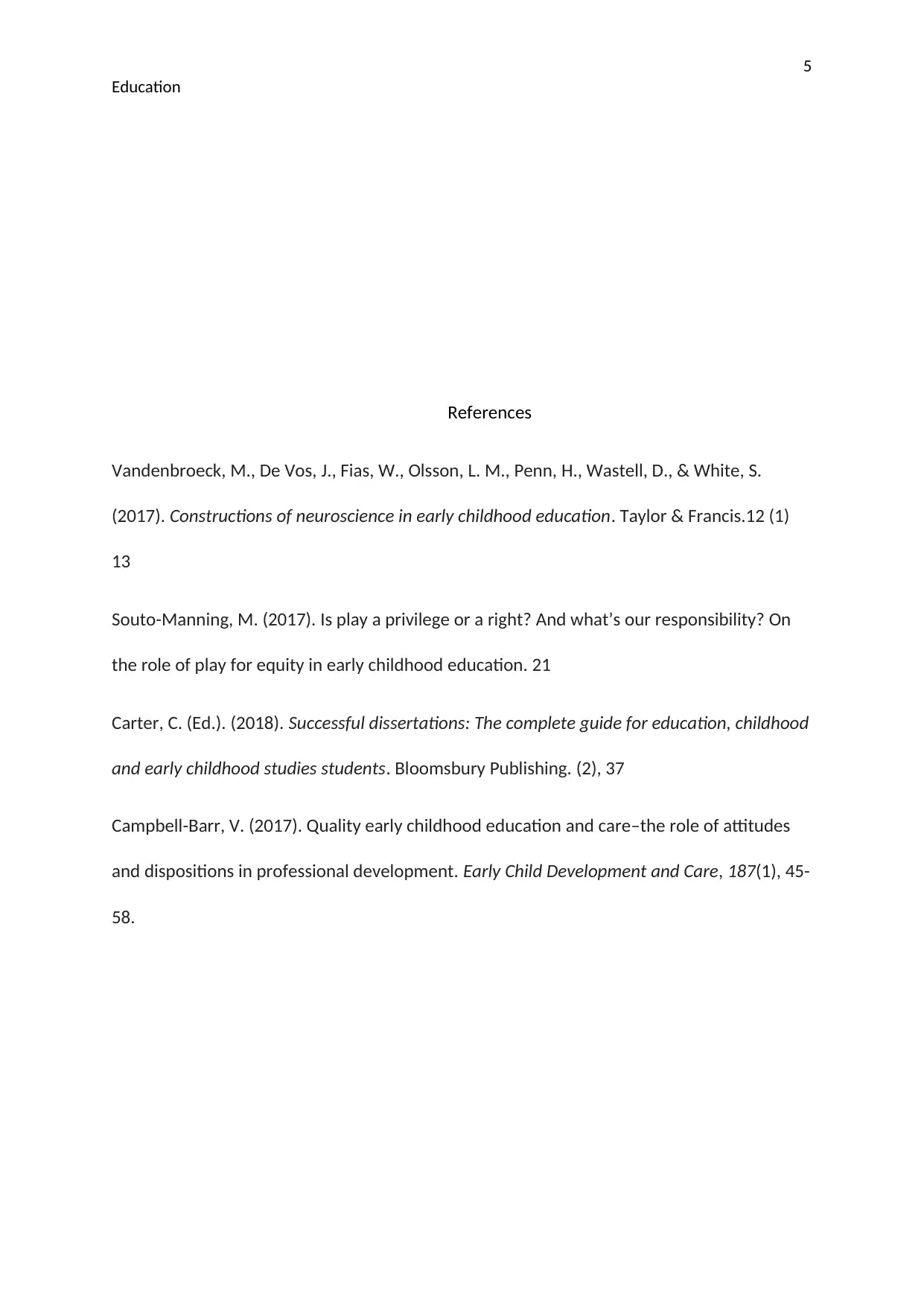





![[object Object]](/_next/static/media/star-bottom.7253800d.svg)